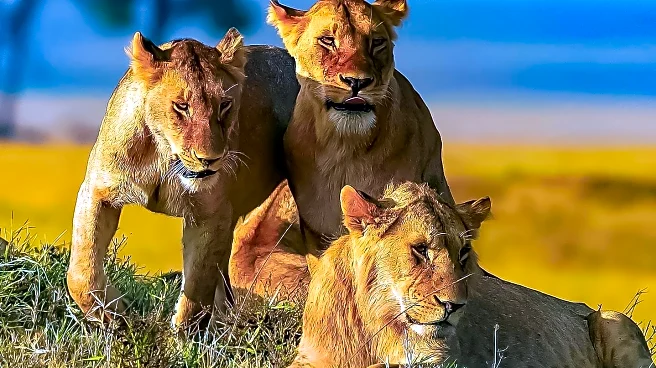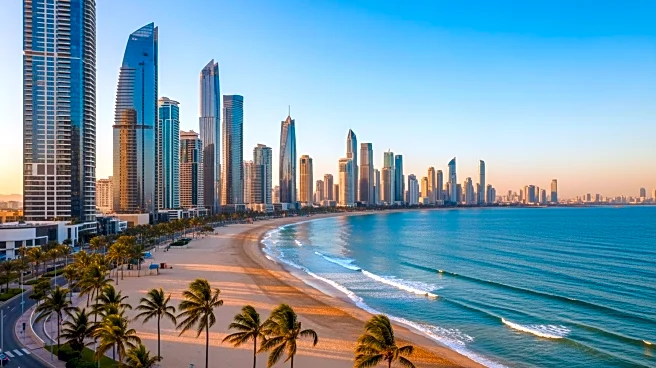What's Happening?
The Kamo Wildlife Sanctuary in New Zealand has euthanized two of its seven elderly lions due to financial difficulties and the closure of the sanctuary. The sanctuary, located in Whangārei, closed to the public
last weekend, and the decision to euthanize the lions was made by the property owners, Bolton Equities. The remaining five lions are at risk of the same fate unless a buyer is found to invest in the sanctuary. The sanctuary director, Janette Vallance, stated that relocation is not a viable option due to the lions' age and complex needs. There is some hope as potential buyers have expressed interest in purchasing the facility to continue caring for the lions.
Why It's Important?
The closure of the Kamo Wildlife Sanctuary and the euthanization of its lions highlight the financial challenges faced by wildlife sanctuaries globally. These facilities often rely on significant capital investment to maintain operations and care for animals. The situation underscores the importance of sustainable funding models for wildlife conservation efforts. The potential loss of the sanctuary could impact local tourism and conservation efforts, as well as raise ethical concerns about the treatment and care of captive animals.
What's Next?
The future of the remaining lions at the Kamo Wildlife Sanctuary remains uncertain. Efforts are underway to find a buyer willing to invest in the sanctuary and continue caring for the animals. The situation has drawn public attention, and the sanctuary director has received threatening messages, highlighting the emotional and ethical dimensions of the issue. The outcome will depend on the ability to secure financial support and the willingness of potential buyers to invest in the sanctuary's future.
Beyond the Headlines
The euthanization of the lions at the Kamo Wildlife Sanctuary raises broader ethical questions about the treatment of animals in captivity and the responsibilities of private owners in ensuring their welfare. The situation also highlights the challenges faced by wildlife sanctuaries in balancing financial viability with ethical considerations. The public response to the sanctuary's closure and the fate of the lions may influence future policies and practices in wildlife conservation and animal welfare.











